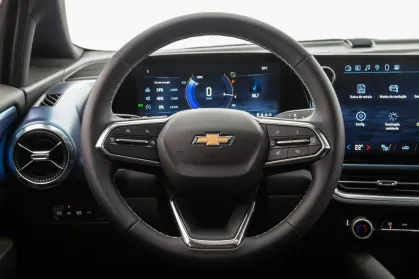In recent years, Brazil has been making significant strides in the electric vehicle (EV) market, driven by global giants like BYD and Tesla. According to Bloomberg Green, Brazil saw a remarkable 32% increase in electric vehicle registrations in the first half of 2023, a testament to the growing interest in sustainable mobility in the country. As Brazil’s EV market charges forward, this article will uncover how companies like BYD and Tesla are fueling this transformation, what challenges they face, and what the future holds for electric vehicles in Brazil.
The Rise of Electric Vehicles in Brazil
Brazil’s journey into the EV realm is gaining momentum, buoyed by increasing environmental awareness and supportive government policies. Let’s delve into how BYD and Tesla are influencing this change.
BYD’s Strategic Moves in Brazil
BYD, a leader in electric mobility, has established a strong presence in Brazil. Here’s how BYD is making waves:
- Local Manufacturing: Since 2015, BYD has been manufacturing electric buses in Campinas, São Paulo, positioning itself as a key player in Brazil’s public transport sector.
- Strategic Partnerships: BYD has partnered with local companies to expand its EV charging infrastructure, critical for supporting the growing number of EVs on the road.
- Diverse Product Line: From electric buses to passenger cars, BYD offers a wide range of EVs that cater to different segments of the Brazilian market.
BYD’s commitment to Brazil is evident through its investments in local manufacturing and partnerships, which are crucial for long-term growth.
Tesla’s Impact and Innovations
Tesla, synonymous with cutting-edge electric vehicles, is also eyeing the Brazilian market. Here’s how Tesla is contributing to Brazil’s EV surge:
- Innovative Technology: Tesla’s advanced battery technology and autonomous driving features are major attractions for tech-savvy Brazilians.
- Supercharger Network: Although still expanding, Tesla’s Supercharger network is set to facilitate long-distance travel, a critical factor for EV adoption in Brazil.
- Brand Prestige: Tesla’s reputation for high performance and luxury is drawing interest from Brazilian consumers eager to embrace sustainable technology.
Tesla’s entry into Brazil is still in its early stages, but its innovative approach and brand appeal are significant drivers of interest in electric vehicles.
Overcoming Challenges in Brazil’s EV Market
While the momentum is promising, Brazil’s EV market faces several challenges. Understanding these hurdles is key to navigating the path forward.
Infrastructure and Charging Solutions
The lack of a widespread EV charging infrastructure remains a major barrier. To overcome this, companies are:
- Expanding Charging Networks: Both BYD and Tesla are investing in expanding the charging infrastructure to support their vehicles.
- Public-Private Partnerships: Collaborations between companies and local governments aim to establish more charging stations, particularly in urban areas.
Economic and Regulatory Factors
Brazil’s economic landscape and regulatory framework pose additional challenges:
- Import Taxes: High import taxes on electric vehicles can deter potential buyers. However, ongoing discussions about tax incentives could mitigate this.
- Government Incentives: While some states offer incentives, a nationwide policy is needed to accelerate growth.
Addressing these challenges requires a concerted effort from both the government and private sector to create a conducive environment for EV adoption.
Tips for Prospective EV Buyers in Brazil
For those considering electric vehicles in Brazil, here are some practical tips:
- Evaluate Charging Options: Before purchasing an EV, assess the availability of charging stations in your area, and consider installing a home charger.
- Consider Total Cost of Ownership: While the upfront cost of EVs can be higher, consider savings on fuel and maintenance.
- Stay Informed on Incentives: Keep an eye on government incentives that could reduce purchase costs.
The Future of EVs in Brazil
The future of electric vehicles in Brazil looks promising, with both BYD and Tesla playing pivotal roles. Here’s what to expect:
- Increased Local Production: As demand grows, more companies may follow BYD’s lead in local manufacturing, reducing costs and increasing accessibility.
- Technological Advancements: Continued innovation in battery technology and charging infrastructure will make EVs more appealing.
- Sustainable Mobility Initiatives: Brazil’s commitment to reducing carbon emissions aligns with the global shift towards sustainable transportation.
As Brazil continues to embrace electric mobility, the role of industry leaders like BYD and Tesla will be crucial in shaping a sustainable future.
Conclusion
Brazil’s electric vehicle market is charging forward, driven by the efforts of BYD and Tesla. As infrastructure improves and economic challenges are addressed, the potential for growth is immense. For prospective EV buyers, understanding the market dynamics and available options is key to making informed decisions. What do you think the future holds for electric vehicles in Brazil? Share your thoughts in the comments below!
With increasing investments and a focus on sustainability, Brazil is poised to become a significant player in the global EV market. The journey is just beginning, but the momentum is undeniable, promising a greener, more sustainable future for Brazil and beyond.

